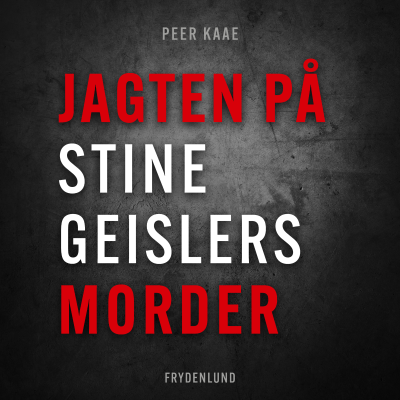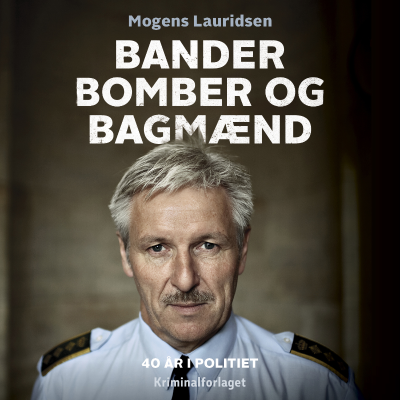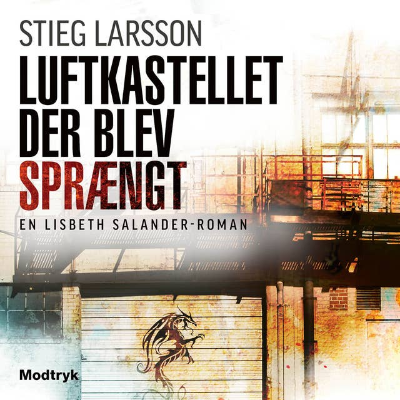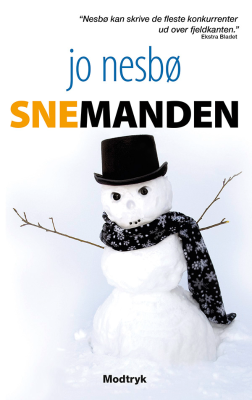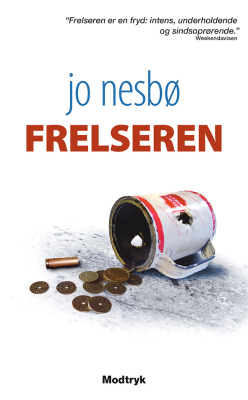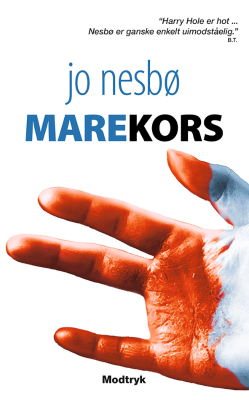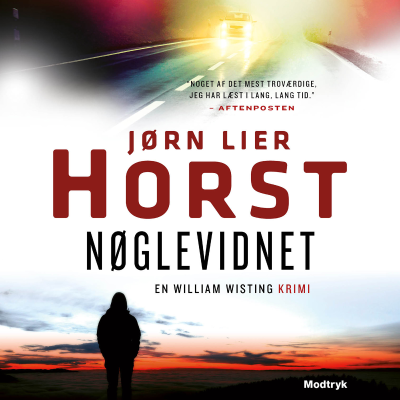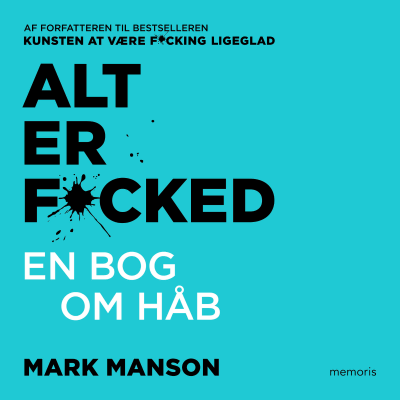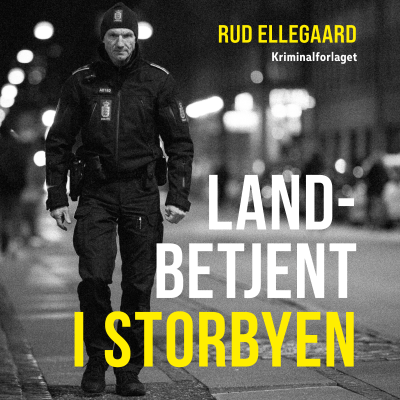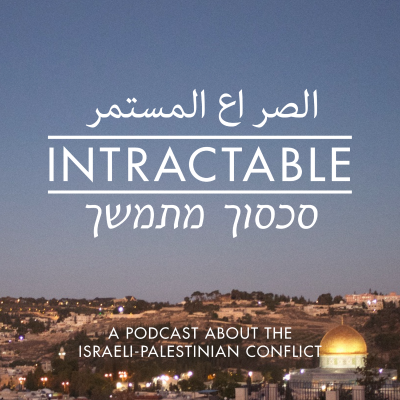
Intractable
Podcast af Intractable Podcast
Intractable is a podcast about a well-covered, but often misunderstood, topic: the Israeli-Palestinian conflict. Each episode takes on one subject—national identity, military culture, political extremism, historical memory, psychology, religion, and media coverage, among others—and investigates it through personal narratives and news stories. Through historical research and present-day interviews with people from myriad backgrounds, Intractable seeks to tell a complete and complicated story—one that gets closer to the truth than any one-sided narrative ever could; one that may, in its telling, evoke more questions than answers.
Begrænset tilbud
3 måneder kun 9,00 kr.
Derefter 99,00 kr. / månedIngen binding.
Alle episoder
8 episoderAn update from Skyler and a bit of much-demanded information about the future of Intractable.
In our seventh episode, we explore the cyclical nature of the conflict—from a human perspective. What can we discover about the next generation, and about the future of Israelis and Palestinians, by looking at the way young people within this conflict communicate with one another—or don’t? In Tel Aviv and Jaffa, Skyler interviews an Israeli professor with a revolutionary idea [http://mindsofpeace.org], and sits in on an event that brings young women from Israel and the West Bank together for the teeny tiny task of finding a peaceful resolution to the conflict. In Jerusalem, we talk to parents and children at Hand in Hand [https://www.handinhandk12.org], a groundbreaking school that envisions generational change through mixed Jewish-Arab education—in Arabic and Hebrew. Like what you hear? Subscribe, rate, and review us! And while you're at it, follow us online: facebook.com/intractablepodcast [http://facebook.com/intractablepodcast] Instagram: @intractablepodcast [https://www.instagram.com/intractablepodcast/]
In our sixth episode, we inquire after what seems like a history of failed negotiations. If, as former guest, Oxford professor Dr. Sara Yael Hirschhorn said, we need to listen to what the people living here really want in terms of peace arrangements… How can we figure that out? Skyler speaks with seasoned conflict scholar Yuval Benziman [https://crmr-en.huji.ac.il/people/yuval-benziman] about the importance of two-track diplomacy and the complications that are inherent to a conflict that’s been going on this long. In Ramallah, Dr. Khalil Shikaki, director of the Palestinian Centre for Policy and Survey Research [https://www.pcpsr.org], walks us through the numbers, getting us close to an answer. And once we cover the (somewhat surprising) topics that make people willing to negotiate with the other side, we turn to political psychologist Dr. Gilad Hirschberger [http://portal.idc.ac.il/faculty/en/pages/profile.aspx?username=ghirschberger] to understand the psychological foundations of intractability. Like what you hear? Subscribe, rate, and review us! And while you're at it, follow us online: facebook.com/intractablepodcast [http://facebook.com/intractablepodcast] Instagram: @intractablepodcast
In our fifth episode, we change our plans in light of recent headlines and address the quagmire of Gaza. What is daily life like on the inside? What exactly happened at the border fence, and how did we get there? Skyler speaks with Ohad Hemo [https://www.facebook.com/OhadHemoNews/], an award-winning Israeli broadcast journalist who reports on Palestinian affairs, about what goes unpublished in coverage on Gaza, and what he sees as the long-term effects of the blockade. Gaza's sounds and emotions are captured by Mohammad Arafat, a 25-year-old Gazan poet and journalist who writes for We Are Not Numbers [https://wearenotnumbers.org], and who speaks with us about what it's like to grow up, live, and dream, on the other side of the fence. Intractable is made possible thanks to Yale University's Howland and Cohen Fellowships. The show is recorded and produced at IDC International Radio, with the help of Yvonne Saba and Rona Zahavi. Like what you hear? Subscribe, rate, and review us! And while you're at it, follow us online: facebook.com/intractablepodcast [http://facebook.com/intractablepodcast] Instagram: @intractablepodcast
In our fourth episode, Skyler tackles the controversial topic of the West Bank settlement movement. What motivates Israelis to live east of the Green Line, and what role do the Jewish communities of the West Bank—often referred to by supporters of the movement as Judea and Samaria—play in a theoretical peace process? Dr. Sara Yael Hirschhorn [http://www.ox.ac.uk/news-and-events/find-an-expert/dr-sara-yael-hirschhorn], Oxford University lecturer and author of City on a Hilltop: American Jews and the Israeli Settler Movement [https://www.amazon.com/City-Hilltop-American-Israeli-Movement/dp/0674975057], helps situate us in the ideological history of the movement, as well as the current situation. Dr. Ronit Levine-Schnur [http://ronitlevineschnur.wixsite.com/mysite], a legal expert in property law, walks us through some of the legal complexities of deciding what land in the West Bank belongs to whom. Israeli documentary filmmaker Ayelet Bechar talks to us about her personal project, Armed [http://hamushot.kan.org.il/], an exploration of armed female settlers in the West Bank. And, finally, we talk to two people who live in the West Bank themselves: One religious settler (Rabbi Hanan Schlesinger of Roots [https://www.friendsofroots.net/]) and one Palestinian (Issa Amro, of Youth Against Settlements [http://www.yashebron.org/about]), each of whom has chosen to turn away from the cycle of violence that often seems to consume the region, in favor of a different solution.
Begrænset tilbud
3 måneder kun 9,00 kr.
Derefter 99,00 kr. / månedIngen binding.
Eksklusive podcasts
Uden reklamer
Gratis podcasts
Lydbøger
20 timer / måned












